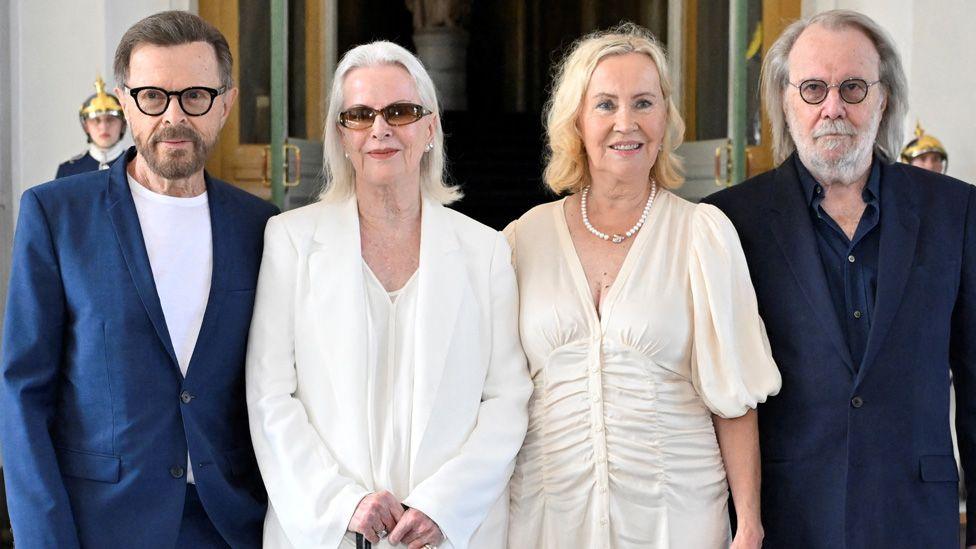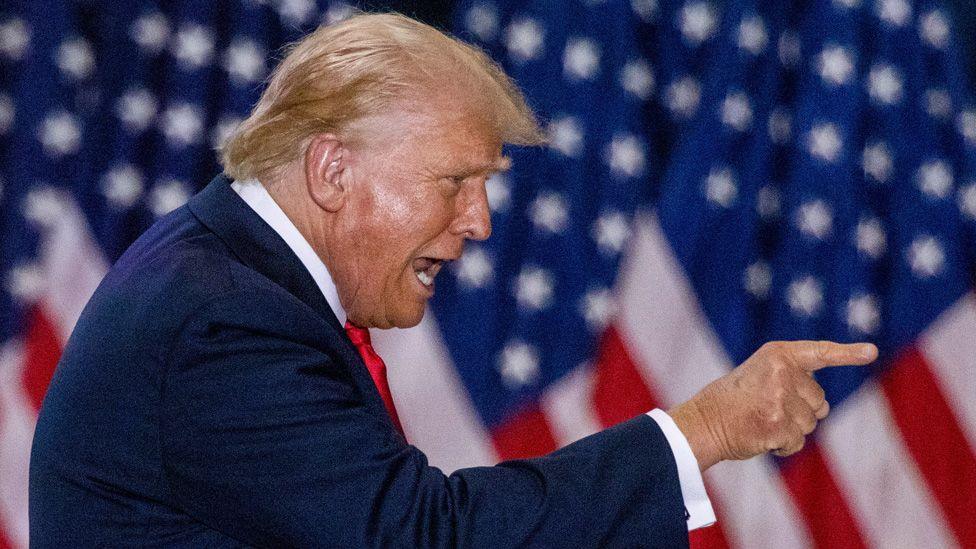Abba complain about Trump using songs in campaign

Swedish group Abba formed more than 50 years ago
- Published
Swedish pop superstars Abba have complained after their hits like The Winner Takes it All were played at one of Donald Trump's presidential campaign rallies.
The group's songs and videos, also including Money, Money, Money and Dancing Queen, were also played at the event in Minnesota in July, according to Swedish newspaper Svenska Dagbladet.
In a statement to the Reuters news agency, the band's record label Universal Music said: "Together with the members of Abba, we have discovered that videos have been released where Abba's music has been used at Trump events, and we have therefore requested that such use be immediately removed and taken down."
The label said no permission or licence had been granted to Mr Trump's campaign.
Abba are the latest in a long list of artists or their estates who have objected to Mr Trump using their music to promote his presidential campaign.

This week, Foo Fighters took to social media to say they hadn't granted permission for My Hero to be used at a Trump rally. The Trump campaign said they had permission to use the song, according to The Independent., external
A spokesperson for the band told the publication that any royalties received from the Trump campaign using the song would be donated to Kamala Harris's campaign.
Last month, Celine Dion's team condemned the "unauthorised" use of a clip of My Heart Will Go On, and the family of late soul singer Isaac Hayes ordered Mr Trump to stop playing Hold On, I'm Coming and demanded $3m (£2.4m) in licensing fees.
In March, the estate of Sinéad O'Connor demanded he stop playing Nothing Compares 2 U, saying she would have been "disgusted, hurt, and insulted".
Previously, Adele, REM and the Rolling Stones are among the big names who have demanded he doesn't use their songs.
However, musicians have only had limited success in stopping politicians from using their music.
In the US, campaigns are required to obtain a Political Entities Licence from music rights body BMI, which gives them access to more than 20 million tracks for use in their rallies.
Artists and publishers can ask for their music to be withdrawn from the list, but it seems that organisers rarely check the database to ensure they have clearance.